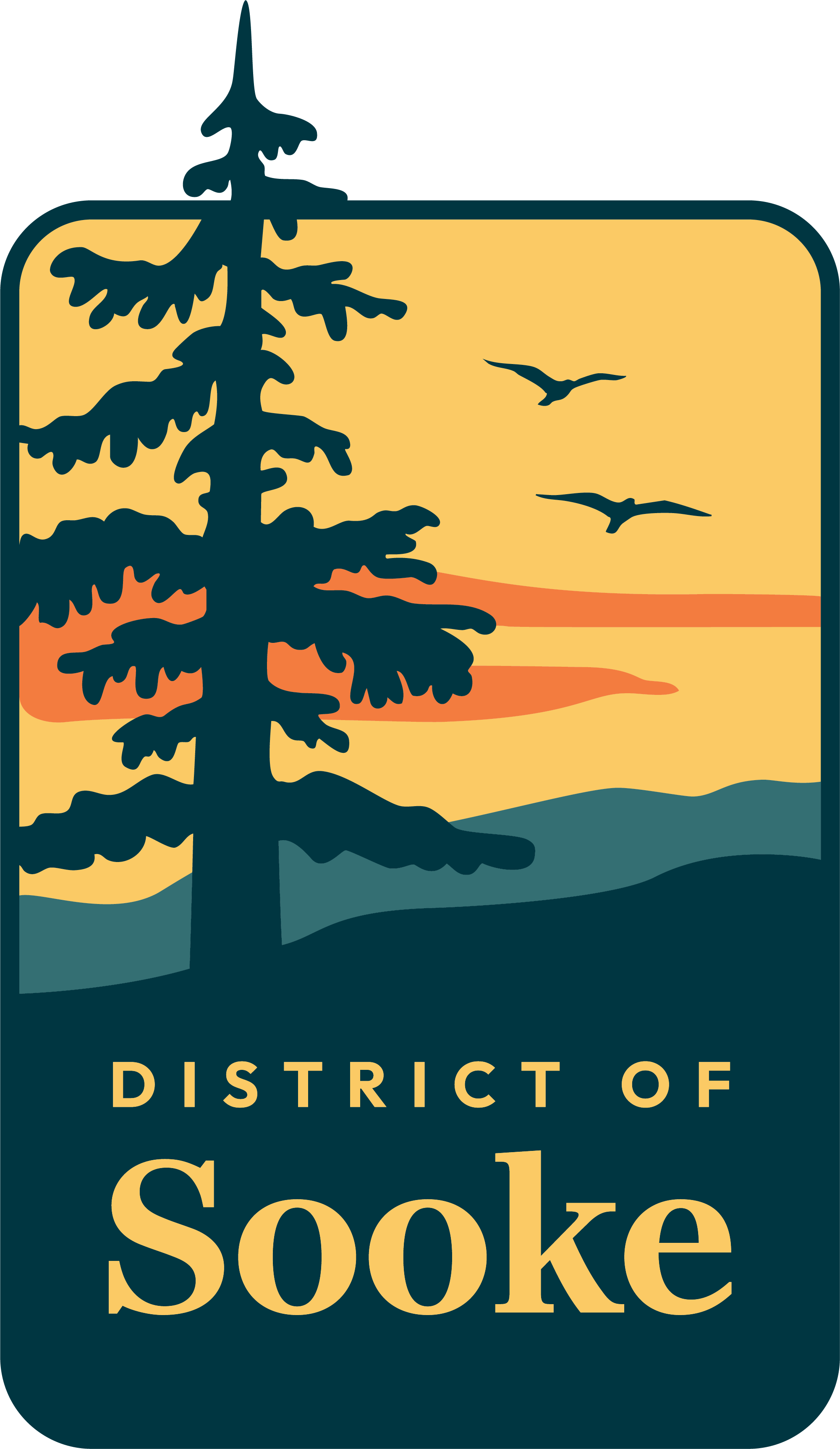The official end of a Council meeting.
Council Meeting Glossary
Local government has its own language — and it can sometimes feel a bit technical. This glossary explains common terms you may hear during Council meetings, read in agendas or minutes, or see in District communications. It’s designed to help residents better understand how decisions are made and how to follow along or participate with confidence.
The official list of items that Council will talk about and make decisions on during a meeting.
A formal change proposed to a motion or bylaw before it is voted on.
A law created by the District that applies within Sooke.
A bylaw must pass several “readings” before it can be adopted:
- First Reading – Council introduces the bylaw for the first time. No detailed debate takes place.
- Second Reading – Council debates the bylaw in more detail. Amendments can be made at this stage.
- Third Reading – Council reviews the final draft of the bylaw. If approved, the bylaw is nearly ready to become law.
- Fourth Reading (Adoption) – The last step. If Council votes in favour, the bylaw becomes official law.
The official start of a Council meeting, led by the Mayor or presiding Chair.
When a motion is approved by a majority of Council members.
The person leading the meeting, usually the Mayor or Deputy Mayor.
A less formal Council meeting where members can have open discussions before making formal decisions later in a Regular Council Meeting.
A group of routine items that Council approves all at once, without discussion, unless someone requests that an item be pulled for debate.
When a Council member may benefit personally (financially or otherwise) from a decision being made. In this case, the member must declare the conflict and leave the room for that item.
When a motion does not get enough votes to pass.
When a member of the public or an organization speaks directly to Council about an issue or request.
A private Council meeting (not open to the public) where sensitive topics are discussed, such as legal issues, land negotiations, or personnel matters.
A proposal made during a meeting for Council to debate and vote on.
Items added to the agenda that were not previously scheduled.
A way for a Council member to signal they plan to bring forward an idea or proposal at a future meeting.
A formal way for a Council member to ask if meeting rules are being followed correctly.
A meeting where community members can share their views on a proposed bylaw (often related to land use or zoning) before Council makes a decision.
The minimum number of Council members who must be present for the meeting to proceed. In Sooke, this means four of the seven elected officials.
When a Council member steps away from discussion or voting on a matter because of a conflict of interest.
A scheduled meeting that takes place at set times (in Sooke, typically twice a month).
Written documents prepared by staff that provide background information and recommendations for Council decisions.
A decision that Council makes after voting on a motion.
A Council meeting held outside of the regular meeting schedule, often for urgent or specific matters.
When Council decides to postpone discussion or a decision on an item until a later time.
Items that were not completed in a previous meeting and are brought forward again.
Contact Us
District of Sooke
2205 Otter Point Road
Sooke, BC V9Z 1J2
Hours: Mon-Fri 8:30am – 4:30pm
Phone: 250-642-1634
Sign up to our Newsletter
Stay up to date on the District’s activities, events, programs and operations by subscribing to our eNewsletters.
